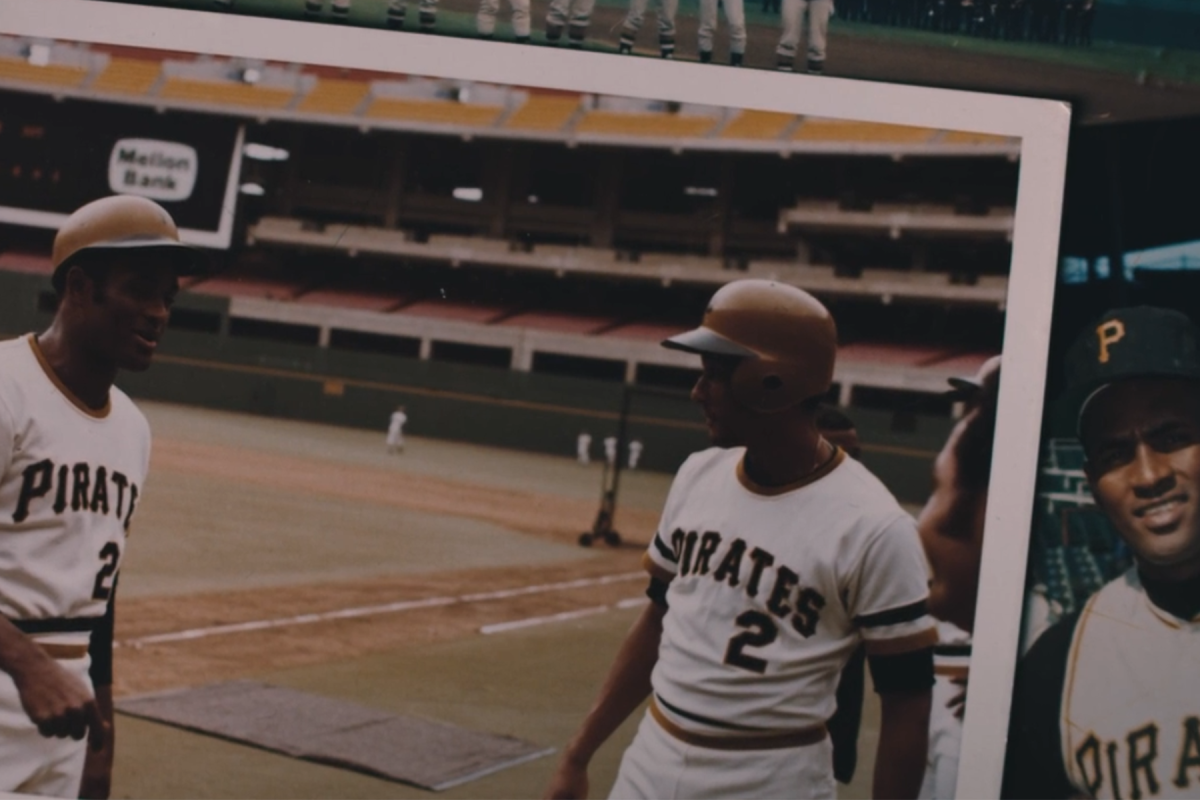If you’re anything like me, baseball is the last thing on your mind. As an international student from Indonesia, the ball game has always felt like the one thing that screamed “America,” and not always in a welcoming way. Yet, director David Altrogge’s new documentary “Clemente” showed me that baseball, when played by people with compassion and generosity, is much more than just a game.
The film tells the story of Roberto Clemente, the Puerto Rican right fielder for the Pittsburgh Pirates who became the first Latino player to make 3,000 hits and win two World Series titles. While these feats make him a legend, the documentary shows how Clemente’s greatness was never confined to numbers. Off the field, he was just as extraordinary, using his platform to advocate for marginalized communities through philanthropy. This unwavering commitment to service lasted up until Clemente’s tragic death at 38 in a 1972 plane crash while delivering aid to earthquake victims in Nicaragua.
Clemente’s story doesn’t begin on the field, it begins with grief. His older sister died in a fire when he was a child, leaving him utterly traumatized. Altrogge uses animation to show this moment, a surprising yet stunning choice that emphasizes the childlike perspective through which Clemente experienced this tragedy. From the very beginning, it’s clear this isn’t a traditional sports documentary. It’s a portrait of an entire life, both on and off the field.
The editing of the film moves fluidly between archival footage, newsreels and interviews, creating a rhythm that feels both intimate and epic. Scenes never overstay their welcome, but they also give space for emotion to breathe.
Altrogge weaves together an impressive range of voices to tell Clemente’s journey. Pittsburgh native Michael Keaton appears not as a Hollywood actor, but as a lifelong Pirates fan whose admiration underscores Clemente’s lasting impact. Iconic Puerto Rican actress Rita Moreno emphasizes how Clemente carried the weight of representation on his shoulders. Former teammates recount affectionate stories about his leadership and loyalty.
But the true heart of the film lies in the testimonies of his wife, Vera, and three sons. Their words are tender, intimate and unguarded, reminding us that Clemente was above all else a husband and a father. Full of grief and pride, they make him feel not only legendary but achingly human.
In one touching moment, the documentary reveals that Clemente would pretend he didn’t speak English fluently so he could overhear what people said about him: an act of self-defense that immigrants know all too well. But in Clemente’s hands, it became more than survival: It was transformation. Instead of letting those moments harden him, he used them to rise above bitterness and lead with generosity. That detail crystallizes the film’s larger point that Clemente’s power wasn’t just in his athletics but in his morality, and that’s what makes his story urgent today.
The documentary reminds viewers that Clemente lived in a time when Puerto Ricans faced systemic erasure, hostility and misunderstanding, all realities that persist today. Amid ongoing deportations of Puerto Rican communities, it has never been more urgent to remember Clemente not just as a sports hero, but as proof of how deeply Puerto Ricans have shaped the United States’ identity. His words capture the emotional power of the film. It’s not just a historical recounting, but a living, breathing testament to Clemente’s impact well beyond the sport he played.
Contact Bryan Athallah at [email protected].

























































































































































